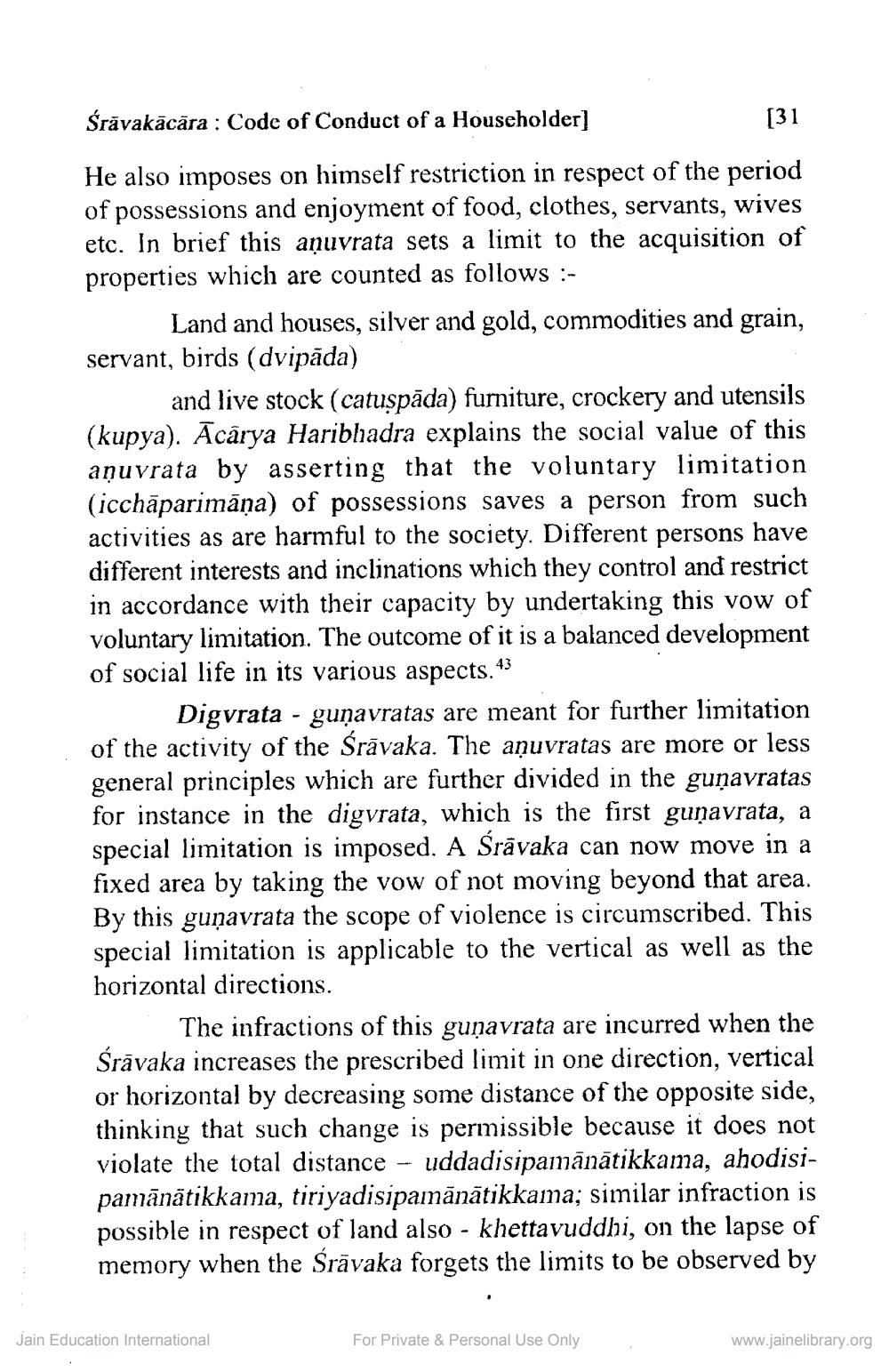________________
Śrāvakācāra : Code of Conduct of a Householder)
[31
He also imposes on himself restriction in respect of the period of possessions and enjoyment of food, clothes, servants, wives etc. In brief this aņuvrata sets a limit to the acquisition of properties which are counted as follows :
Land and houses, silver and gold, commodities and grain, servant, birds (dvipāda)
and live stock (catuspāda) furniture, crockery and utensils (kupya). Ācārya Haribhadra explains the social value of this aņuvrata by asserting that the voluntary limitation (icchāparimāna) of possessions saves a person from such activities as are harmful to the society. Different persons have different interests and inclinations which they control and restrict in accordance with their capacity by undertaking this vow of voluntary limitation. The outcome of it is a balanced development of social life in its various aspects. 43
Digvrata - guņavratas are meant for further limitation of the activity of the Śrāvaka. The aņuvratas are more or less general principles which are further divided in the guņavratas for instance in the digvrata, which is the first guņavrata, a special limitation is imposed. A Śrāvaka can now move in a fixed area by taking the vow of not moving beyond that area. By this guņavrata the scope of violence is circumscribed. This special limitation is applicable to the vertical as well as the horizontal directions.
The infractions of this guņavrata are incurred when the Śrāvaka increases the prescribed limit in one direction, vertical or horizontal by decreasing some distance of the opposite side, thinking that such change is permissible because it does not violate the total distance - uddadisipamānātikkama, ahodisipamānātikkama, tiriyadisipamānātikkama; similar infraction is possible in respect of land also - khettavuddhi, on the lapse of memory when the Srāvaka forgets the limits to be observed by
Jain Education International
For Private & Personal Use Only
www.jainelibrary.org




